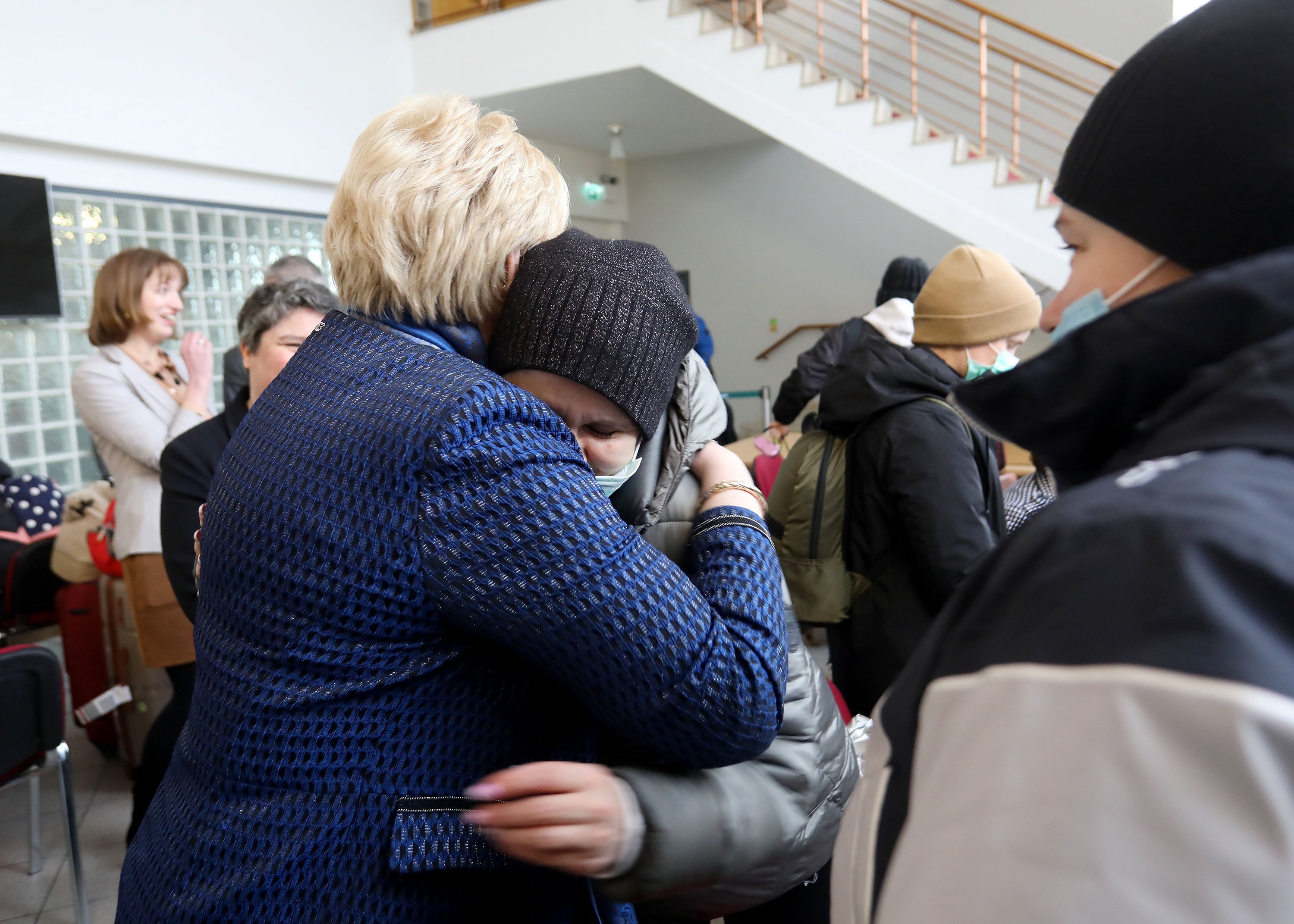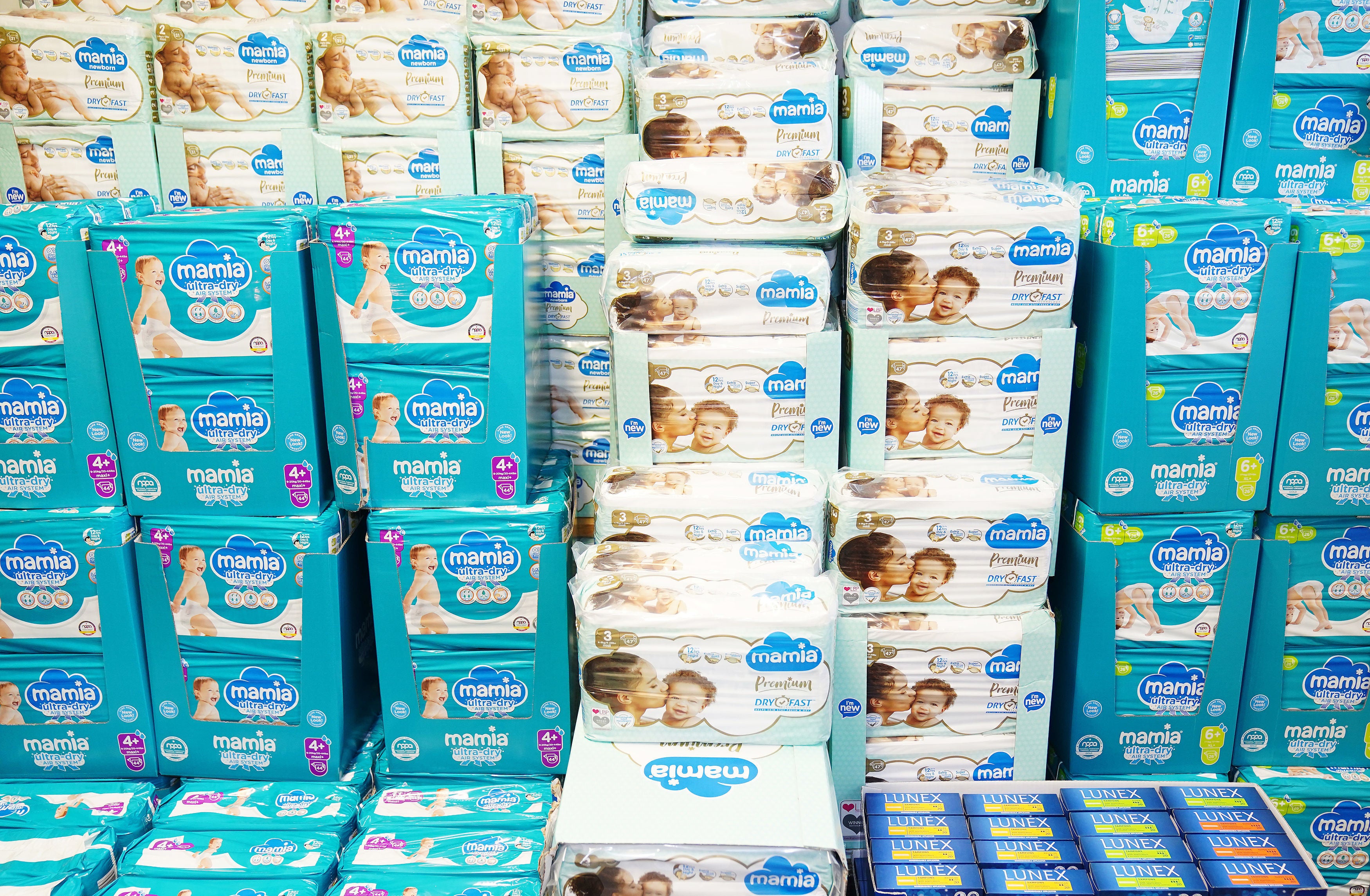A hundred thousand welcomes: How Ireland has embraced Ukrainians fleeing war
As the UK comes under criticism about receiving people fleeing Ukraine, Ireland’s approach has been far warmer, reports Joyce Fegan from Dublin

At the arrivals hall in Dublin airport a grandmother won’t let go of her newborn grandson. Older generations of one family gather to welcome the next one home.
Friends and lovers rugby-tackle embrace over trolleys laden with suitcases. Someone drops an AirPod. A stranger alerts its owner, nodding to the tiled stone floor.
In the background, a pianist plays David Gray’s “This Year’s Love” on a nearby piano.
In the midst of all this, a silent group of about a dozen women and children file through, guided by airport officials. Phone chargers and cables stuff their back pockets. They carry only backpacks. No one in arrivals notices the passing refugees.
Never before has Ireland’s céad míle fáilte – a hundred thousand welcomes – been more robustly tested than it has in the last two weeks as millions flee Ukraine for safety in Europe.
With the European Union passing a temporary protective directive to allow Ukrainian citizens and others escaping the war to move through the bloc as EU citizens, how hospitable has the state of Ireland, and its people, been?
“My mum when was she was coming through to Poland, slept in a school gym and they put some mattresses on the floor. Then when we come to Ireland, we’re welcomed to a four-star hotel. We almost cried,” says Viktor, 49.
A Ukrainian citizen and father of four, Viktor had been living in Moscow where he worked as an interpreter. He decided to flee Russia after he was followed by a police officer having attended an anti-war protest. He was threatened with prison.

Viktor also wanted to rescue his mother from Ukraine. Their journey to Ireland included crossing international borders by foot and being held in an open field for 26 hours in temperatures of -10C.
They eventually flew from the Latvian capital Riga and landed in Dublin in the early hours of 8 March.
“I had read the situation in every country regarding receiving refugees, and you have to understand I am taking my elderly mum so it had to be carefully considered. I never imagined being in this situation in my life,” explains Viktor.
“We have been welcomed. It was a really warm reception. The custom officers helped us and gave us printouts with information, bottles of water, asked us if we needed accommodation and then personally escorted us to a taxi outside to get to the hotel,” says Viktor.
Upon hearing they were Ukrainian refugees, the taxi driver would not accept money for the fare.
Hanna, 36, a family lawyer from Kyiv, landed in Dublin on 9 March, after a 13-day journey with her 11-year-old daughter and 8-year-old son. She left her police officer husband behind in Ukraine to “fight for freedom”. The story of her entry into Ireland is identical to Viktor’s.
“We just followed the security corridor to passport control. They immediately asked us if we needed somewhere to stay. Then we were given water, and an immigration officer personally took us outside to a taxi driver who took us to the hotel,” says Hanna.
“I offered money to the taxi driver but he refused – that was really touching,” she adds.
On arriving at the hotel, the staff “immediately apologised” for having only one large bed in her family room.
“Even though we were really happy, the next day they gave us an extra bed,” says Hanna.
Airport and hotel welcomes aside, what about concrete things such as access to the social welfare and healthcare systems?
The Irish public’s response is amazing. It’s open arms. They just keep offering everything
Ukrainian citizens will be able to work in Ireland and access social services and the full range of social welfare supports.
Neither Hanna nor Viktor were able to apply for their Personal Public Service (PPS) numbers in Dublin airport, but a dedicated room in their hotel soon popped up to process their applications.
A “welcome room“ has now been established in the airport for people fleeing Ukraine. This reception centre includes everything from toys and travel cots to services where people can start their application process to access state support.
Ukrainian nationals will also be entitled to apply for a medical card to access primary care services.
As of Monday, 5,500 Ukrainians have landed at Dublin airport since the war began.
And separate to the state’s response, there is the response of the Irish public. In just two weeks, a population of five million people has raised €17.5m for the Irish Red Cross alone, and 17,000 people have pledged accommodation through the charity too.
The current hotel bill for those arriving from Ukraine is paid for by the state via Ipas, the International Protection Accommodation Services, an arm of the Department of Children, Equality, Disability, Integration and Youth.
On Monday, prime minister Micheal Martin said Dublin was looking at using unspent monies from the Covid contingency fund (€3bn left of €4bn) on housing refugees and the provision of other services.
Michael Baskin, a Ukrainian who has long called Ireland home, is at the forefront of this wave of support. He and 14 friends set up IamUkrainian.ie, the Ukrainian Crisis Centre in Ireland, a few short weeks ago.
“The phone doesn’t stop ringing. The Irish public’s response is amazing. It’s open arms. They just keep offering everything.
“A lot of phonecalls are like: ‘I have a house, I have a spare bedroom, please store my number’. We get hundreds of phonecalls from across the country, from Donegal to Kerry,” says Michael.
And what about the state’s response?
“The Irish government is definitely behind this, but the solutions [to emerging issues] have to be implemented fast,” says Michael.
There are now weekly meetings of government departments taking place, as well as focused sub-groups to monitor developments and coordinate necessary actions.
Some emerging issues include accommodation plans in the medium- to long-term.
Dublin city councillor Hazel Chu, who, in 2020, became the first lord mayor of the capital born to migrant parents, commends the outpouring of support but accommodation is on her mind.
“Because we already have a housing crisis, we need to deal with this issue and ensure that Ukrainians and other refugees coming in, the ones who need our help, support and protection don’t get the blame for the shortcomings of successive failed housing policies,” says Ms Chu, chair of the city’s homeless task force and who is currently running for a Trinity College seat in the country’s Senate.

Politics aside, mothers are mobilising too. Nicole Le Saout and her friend, Ollwyn Moran, felt compelled to take action after seeing the maternity hospital in the Ukrainian city of Mariupol being bombed. They made contact with immigration services in Dublin airport.
“There was one mother who came through with a two-month-old baby and just a roller suitcase, so they need things like buggies, prams and bundles of baby clothes,” says Nicole.
In the space of a matter of hours on Friday night she had collected 25 prams from mothers around Dublin.
For Ukrainian mother Hanna, already in Dublin, all she wants now is to express “gratitude” to every Irish person who “just keep smiling at us”. Her kids however, just want to be in school or out playing football.
The Independent has a proud history of campaigning for the rights of the most vulnerable, and we first ran our Refugees Welcome campaign during the war in Syria in 2015. Now, as we renew our campaign and launch this petition in the wake of the unfolding Ukrainian crisis, we are calling on the government to go further and faster to ensure help is delivered. To find out more about our Refugees Welcome campaign, click here. To sign the petition click here. If you would like to donate then please click here for our GoFundMe page
Join our commenting forum
Join thought-provoking conversations, follow other Independent readers and see their replies
Comments
Bookmark popover
Removed from bookmarks